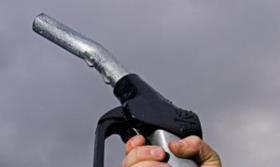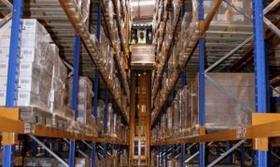MT takes a look at yesterday's pre-Brexit budget (29 Oct) delivered by Chancellor Phillip Hammond to see what lies ahead for the logistics sector and UK economy as it approaches a crucial point.
Infrastructure
- The government has committed £30bn in its “biggest ever” strategic roads investment programme. It will pay for this with £28.8bn of money raised from Vehicle Excise Duty to create a National Roads Fund.
- It will be used to fund major schemes such as the North Devon link road and progress “transformative projects” like the A66 Trans-Pennine route, the Oxford-Cambridge Expressway and the Lower Thames Crossing.
- A pot of £420m will be given to local authorities in 2018-19 to repair damaged roads and tackle potholes. In addition, £150m will be made available to ease congestion by installation of small infrastructure schemes such as roundabouts.
- Metro mayors in six cities will also receive an extra £240m for local transport schemes: £21m for Cambridgeshire and Peterborough; £69.5m for Greater Manchester; £38.5m for Liverpool City Region; £23m for West of England; £71.5m for the West Midlands; and £16.5m for Tees Valley.
Transport taxation
- As previously announced and welcomed by industry, fuel duty will be frozen for a ninth consecutive year.
- Also giving operators confidence when it comes to investing in non-diesel trucks will be the chancellor’s decision to maintain the fuel duty differential for alternative fuels until 2032. This will be subject to review in 2024.

- VED for HGVs will be frozen for 2019-20, which the government said is “to support the haulage sector”.
- Vans, meanwhile, have been given a stay of execution from a new emissions-based charging regime until the impact of WLTP (worldwide harmonised light vehicles test procedure) can be measured. Further details are expected next spring.
Apprenticeships and employment law
- In a move to shake-up the controversial Apprenticeship Levy, the government is to allow levy-payers to use 25% of their available training pot to pay for apprenticeships for their supply chains or smaller subbies. Up to £450m will be made available for this purpose. The Apprentice Levy is paid into by all employers with a wage bill of more than £3m.
- It is also halving the mandatory 'co-investment' rate for SMEs from 10% to 5% for apprenticeship training. This is the amount that non levy-paying firms are expected to pay towards apprenticeships, with the government funding the rest.
- A series of skills pilots are also underway across the UK to match £20m of funding to local needs.
- Large employers will take responsibility for ensuring self-employed subbies, if deemed to be 'employees', adhere to IR35 higher tax and NI rules, which previously only applied to those working for public sector businesses.

Business rates and allowances
- The government plans to increase the annual Investment Allowance for businesses to £1m for all qualifying spends in plant and machinery made after 1 January 2019 to 31 December 2020 to help stimulate investment.
- There will also be a 2% capital allowance for all non-residential structures and buildings.
- In addition, businesses will receive extra business rates tax relief if they make lavatories available to the public.
Industry reaction to budget 2018
Fuel duty: the government still doesn’t ‘get it’
Howard Cox, founder of the FairFuelUK Campaign, said: “Sadly and true to form, despite the continuing and welcome hold in fuel duty, this government still does not get it, when it comes to our motoring nation.
“No necessary cut in duty to stimulate the economy, utter silence on those greedy unchecked oil companies continuing to fleece hard pressed motorists at will, and no incentives to move to practical low emissions solutions to improve our air quality.
“We are not here to declare war on the Treasury, but to many of us it feels like the Treasury, along with the Department for Environment, are waging war on drivers, bikers and anyone who uses a van or lorry. The easiest of targets to fill the coffers at the Treasury.”
A lost opportunity
Christopher Snelling, head of UK Policy at the FTA, said: “The £420m announced in today’s budget to repair potholes is a drop in the ocean when you consider that work that will cost more than £8bn is needed to rectify years of under investment in our road network.
“The damage caused by potholes to the UK’s logistics fleet is adding unnecessary cost to the operation of vehicles tasked with keeping Britain trading, and FTA is concerned that the funding released by the chancellor today will mean that operators will continue to incur these unreasonable costs at a time of extreme trading pressure.
“More could and should have been done to help the logistics sector at such a critical time in the nation’s trading history. It is a lost opportunity.
“The freeze on the HGV VED for 2019-20 is to be welcomed, and FTA is particularly pleased to hear that the government is set to maintain the difference between alternative and main road fuel duty rates until 2032. This will support the de-carbonisation of the UK transport sector and give operators confidence to invest in alternatively fueled vehicles.”
Road improvements must start now
The RHA welcomed the news that the government will halve the amount smaller firms have to pay to hire an apprentice from 10% to 5%.
It also welcomed the chancellor's recognition that the UK road network is in desperate need of a cash injection and intention to earmark a total of £30bn for motorways and other major road improvements. This includes £420m for fixing potholes to be made available immediately.
“While on the one hand this is both good and welcome news, we need to see work start on improving our road network now,” said RHA chief executive Richard Burnett.
“Congestion resulting from road improvements costs the haulage industry millions of pounds each year. We are already heading towards another cold winter and the potholes resulting from last winter’s freezing conditions still need to be fixed before they get even worse,” he added.
Recognises clean fuels
Charlotte Morton, chief executive of the Anaerobic Digestion & Bioresources Association (ADBA), said: “ADBA welcomes the confirmation that ministers will maintain the difference between alternative and main road fuel duty rates until 2032 to support the decarbonisation of the UK transport sector – this recognises the valuable role that clean fuels such as biomethane need to play.”
Fleets need a fair tax regime that rewards clean choices
Gerry Keaney, chief executive, BVRLA, said: “The decision to postpone a CO2-based van VED regime is great news for fleets. Tax incentives can be a very powerful tool in driving businesses to use cleaner vehicles, but it is no use having these until we have enough low-emission van options on the market.
"The BVRLA is pleased that the government has listened to its feedback on this issue and decided to take a pragmatic, business friendly approach to greening the van fleet.”
Red diesel – a missed opportunity
Dearman CEO Scott Mac Meekin said: “We are naturally disappointed not to see the chancellor make an announcement on scaling back red diesel, particularly for transport refrigeration.
"We know ministers recognise the urgency of improving Britain’s air quality, so although the budget was a missed opportunity, we will continue to engage with ministers and civil servants to make the case for scaling back red diesel. Clean technologies will continue to be undercut as long as the price of diesel is artificially lowered.”
No plans for a 'no-deal Brexit'
Ian Baxter, chairman of Baxter Freight, said: “What we have learned from the chancellor’s Budget announcement is that he really isn’t planning on a no deal Brexit which may be the biggest thing to cheer of all his announcements!

“If we were to end up with a no-deal Brexit this would require a completely new budget announcement and economic forecast from the government. Today’s £500m no deal funding, £2.2bn Brexit funding or £15bn Brexit contingency would not touch the sides of the problem.”
Good News for Highways
Steve Norris, chairman of the Highways UK Advisory Board, said: “The chancellor's announcement in his budget speech that for the first time in decades the entire product of vehicle excise duty would be spent on the nation's major roads is a great boost for the country's economy.
“The link between an efficient road infrastructure and increased productivity has long been understood but seldom honoured in the past."













